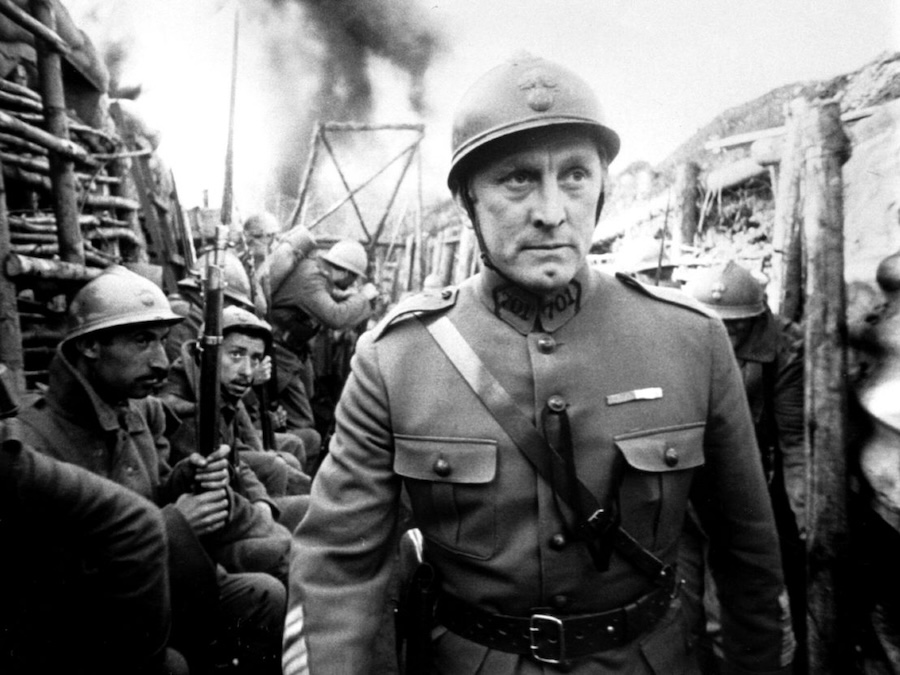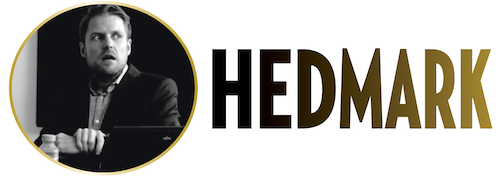
NEVER HAS THE SCREEN THRUST SO DEEPLY INTO THE GUTS OF WAR!

”The paths of glory lead but to the grave”. Famous words from Thomas Gray’s 1751 poem ”Elegy Written in a Country Churchyard”. Author Humphrey Cobb used it for the title of a novel he published in 1935, inspired by actual events that took place in the French army during World War I. Four corporals were executed for failing to obey orders. As part of an infantry regiment, they had been told to begin a bayonet assault against German trenches. There was no chance of success, which became obvious as the enemy’s machine guns easily took out the first wave of troops. Exhausted, the remaining soldiers refused to leave their trenches and were court-martialed. Two decades later, when special courts investigated war-tribunal decisions, the four men were exonerated and their families could claim pension rights.
When reading the novel as a young man, it made an impression on Stanley Kubrick, who went ahead and created his first masterpiece.
Taking the Anthill
In this fictionalized version, the story is set in 1916 when Major General Georges Broulard (Adolphe Menjou) orders Brigadier General Paul Mireau (George Macready) to take the Anthill, a German position. Tempted by the chance that this will get him promoted, Mireau agrees that it can be done and tasks Colonel Dax (Kirk Douglas) with the job. Dax realizes immediately that it’s going to be damn near impossible to take that heavily fortified position. When the attack begins, the failure is instant; the German trenches cannot be reached and the soldiers who have yet to leave their own trenches can’t get anywhere because of the bodies of their fallen comrades from the first wave.
Enraged by what he considers cowardice, Mireau orders his artillery to open fire on the soldiers, but the order is refused. A court-martial will have to settle matters.
Not shown in France until the 1970s
The horrors of war and the danger of incompetent officers became a recurring theme in Kubrick’s films. Paths of Glory was made with such rage at the attitude of the French military leadership during World War I that the film wasn’t shown in France until the 1970s; the Berlin film festival chose not to screen it out of fear it might damage the relationship between Germany and France. In Spain, Franco disliked what he perceived as the film’s anti-military stance and banned it. The novel had previously been adapted for Broadway where the audience didn’t seem to have much stomach for its grim message, and that part of the film was also discussed in reviews. Later audiences are more used to war movies being less jingoistic and actually depicting the horrors of war, but Paths of Glory was likely a shock to some people at the time.
These are very sharply choreographed and directed scenes.
Shot in black-and-white in order to make the film look like newsreel footage, it packs a wallop of authenticity in its short running time, both during its gripping action in the trenches as well as (even more importantly) in dialogue-heavy scenes between the officers, including the court-martial where Dax, in his role as defense attorney, faces a wall of indifference to the facts of the case. These are very sharply choreographed and directed scenes.
Near the end of the film, Kubrick has little mercy to offer; neither country nor clergy can save these innocent men and the futility of war, the cruelty and callousness of the generals in charge, become painfully obvious. Douglas is well cast as the increasingly frustrated colonel, but Menjou and Macready are specially effective as the villains of the piece – a smooth, pleasant guarantor of a corrupt, evil organization and a psychotic, ambitious enabler of war crimes.
Paths of Glory 1957-U.S. 88 min. B/W. Directed by Stanley Kubrick. Screenplay: Stanley Kubrick, Calder Willingham, Jim Thompson. Novel: Humphrey Cobb. Cinematography: Georg Krause. Cast: Kirk Douglas (Dax), Ralph Meeker (Philippe Paris), Adolphe Menjou (Georges Broulard), George Macready (Paul Mireau), Wayne Morris, Richard Anderson.
Trivia: The singing woman in the last scene is played by Kubrick’s future wife, Christiane.
Last word: “That farmland we hired had to be dressed and built into a battlefield, with the trenches and barbwires and all of the shell holes. Stanley loved moving shots. The main thing was taking Kirk Douglas through this obstacle course, this barrage. The idea was that Kirk was going to be followed, in a moving shot, through as much action as we could muster before a cut had to be made, after which we would set up to continue. It was cold; it was uncomfortable; it was wet. Everything was tough on Kirk. After he did it the first time, he told Stanley, ‘I’ll give you one more, maybe two, but that’s it. I’m not going to do this forever.’” (Producer James B. Harris, DGA Quarterly)

Greatest antiwar film ever made, “Paths of Glory” established Stanley Kubrick as a first-class film director and he certainly went on to bigger (budgeted) films, but none better than this. Of special note is Ralph Meeker’s performance as Corporal Paris, one of the doomed infantrymen who is executed at the end of the film. After collapsing in fear and grief just before he is to face the firing squad, he pulls himself together at the last minute. His sergeant, played by an unrecognizable Bert Freed, gives him some much-needed encouragement to face his end with some dignity. “How do you want to be remembered?” he asked him. “If we have to drag you out crying and screaming, the end will be the same.” Meeker heeds his words of advice and walks to his execution with courage and determination.